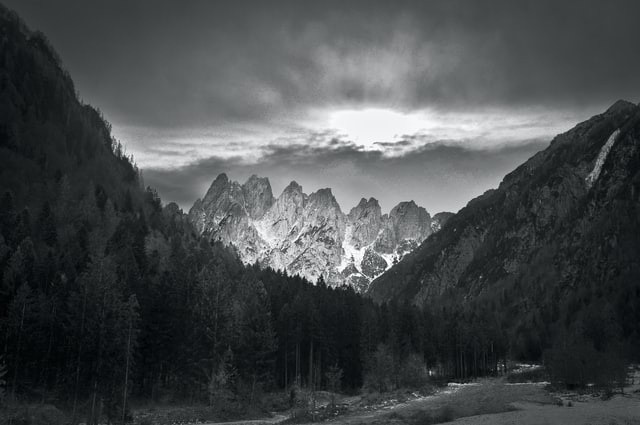There are pink glaciers mysteriously appearing on the Italian Alps. Scientists are investigating their causes and whether they will do harm for the planet, Agence France-Presse reported.
These pink glaciers are from algae that are produced due to climate climate, however the origins of the microorganism are being debated.

The National Research Council in Italy said that these pink glaciers over the alps in Presena in the European continent may be caused by the same organism found off the coast of the continent, specifically in Greenland, AFP added in the report.
Biagio Di Mauro, a member of the council, said, "The alga is not dangerous, it is a natural phenomenon that occurs during the spring and summer periods in the middle latitudes but also at the Poles."
He previously spearheaded the study on algae at the Morteratsch glacier located in Switzerland.
Dark Zone
The plant is known as Ancylonema nordenskioeldii, and is native in the Dark Zone of Greenland, and this is a location where ice is likewise melting.
Usually, ice reflects approximately 80 percent of the radiation from the sun then toward the atmosphere. However, with the appearance of the algae, this tends to darken up the ice in such as way it absorbs the heat and quickly melts.
More of these organisms will appear when the ice melts more quickly, providing air and water, as well as adding the color to the white-coated alps at Passo Gavia. The location is at 2,618 meters or around 8,590 feet from the ground.
Also Read: York Scientists Scale The Alps To Scan High-Altitude Prehistoric Art
The science
Di Mauro added to explain, "Everything that darkens the snow causes it to melt because it accelerates the absorption of radiation. We are trying to quantify the effect of other phenomena besides the human one on the overheating of the Earth."
Aside from the ice, the hikers and those who visit the area may also cause the formation of algae. Tourists at the glacier are saddened that these pink ice caps are more of a threat to the environment than otherwise.
According to one of the tourists, Marta Durante, "Overheating of the planet is a problem, the last thing we needed was algae. Unfortunately, we are doing irreversible damage. We are already at the point of no return, I think."
A tourist from Florence, Elisa Pongini said the Earth seems to be taking vengeance to what people have caused it. She added, "2020 is a special year: terrible things have happened. In my opinion, atmospheric phenomena are worsening. Climate change is increasingly evident."
Also Read: World's Oldest Lizard Fossil Found In The Italian Alps
Climate change
Climate change is being conquered anywhere in the world, but the impacts are present. In the northern hemisphere for instance, summer has begun but in Alaska and Canada, this worldwide phenomenon has seemed to have affected thousands of the region's stream fish from their habitats.
According to The Conversation, many have endured the waters not suitable for these creatures during the long winter. Meanwhile, others have journeyed distances including rivers, lakes, and smaller habitats upstream.




